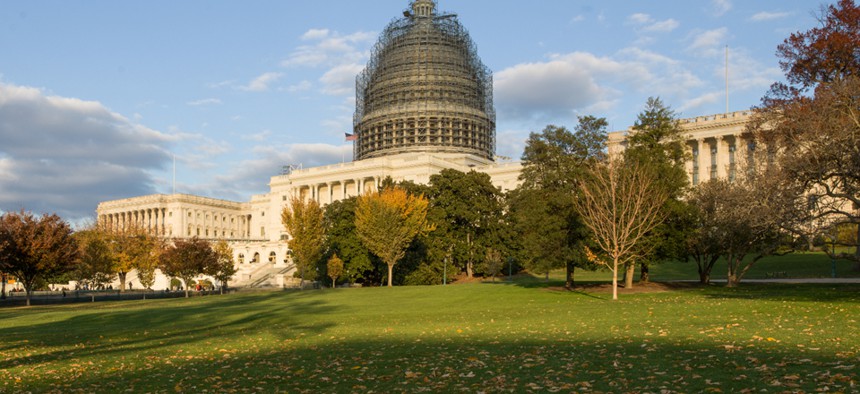
Architect of the Capitol
Don’t Blame Immigration If the Government Shuts Down
The real cause is the same as in 2013: fractures in the Republican coalition.
As is traditional, Congress is flirting with a government shutdown 10 days before it must approve a spending plan for the year.
You can expect to hear lots of arguments about how brinksmanship is a result of president Obama’s executive order allowing some unauthorized immigrants to earn legal status, but the real cause is the same as the shutdown in 2013: fractures in the Republican coalition that leave its leaders dependent on its most radical wing for support.
Absent Obama’s order, the same voices calling for Congress to force a showdown with the president—with the government as hostage—would have relied upon another issue that divides the White House from conservatives. Last year, GOP attempts to carve away provisions of the health care reform bill proved to be the catalyst for a shutdown fight that temporarily diminished the perception of Republicans in the eyes of the public. That lesson has Republican leaders John Boehner and Mitch McConnell, empowered by victories in the 2014 elections even though the new Congress doesn’t begin until 2015, working to tamp down talk of a shutdown.
Their challenge is internal: As Republicans have gained ground in Congress during the Obama years, the party’s conservatives and moderates have struggled to articulate policy alternatives, instead uniting around all-or-nothing fiscal showdowns. Consider health care reform, all repeal and no replace, or the instructive example of immigration. Last year, the Democratic Senate managed to attract 14 Republicans to a compromise reform bill. But the Republican House would neither vote on the compromise (which would upset conservatives) nor pass an alternative bill to bring to the negotiating table (which, if too draconian, could hurt the party’s national political chances).
This effectively tabled the issue, and led to Obama’s decision to slow the deportation process, which White House aides hoped would give the new Republican Congress a reason to take on immigration reform, not a reason to shut down the government.
The question for next year is whether the growing number of Republican legislators provides room for Boehner and McConnell to lose enough conservative votes passing compromise bills the president might sign. Their ability to navigate this week’s argument over spending—which, outside of the grandstanding, was largely settled in last year’s budget agreement and committee talks—will be a signal of the US government’s potential to address everything from immigration and corporate tax reform to global trade deals in the final two years of Obama’s presidency.







